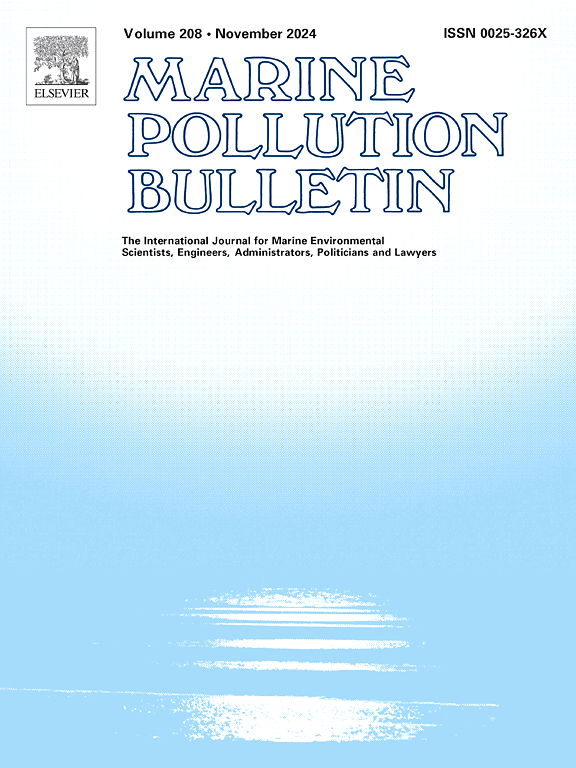皮肤取样作为筛选濒危海龟中全氟和多氟烷基物质(PFAS)暴露的代理
IF 5.3
3区 环境科学与生态学
Q1 ENVIRONMENTAL SCIENCES
引用次数: 0
摘要
全氟和多氟烷基物质广泛存在于环境中,包括海洋中。然而,关于受保护和濒危海龟物种PFAS暴露的信息很少,因为采集肝脏或血液是侵入性的和具有挑战性的。我们首次评估了皮肤组织是否可以用于筛选海龟的PFAS,因为皮肤组织的收集侵入性较小。我们测量了死亡绿海龟幼龟皮肤和血清中20种PFAS的浓度。全氟辛烷磺酸(PFOS)是主要的全氟辛烷磺酸,在大多数皮肤(85%)和血清(100%)中检测到。对于配对皮肤和血清的个体,全氟辛烷磺酸浓度没有显著差异,因此表明皮肤样本在筛选海龟的全氟辛烷磺酸方面有很好的应用前景。该方法可以在未来进行调整和优化,以增加数据覆盖率,并提高我们对海龟暴露于PFAS的理解。本文章由计算机程序翻译,如有差异,请以英文原文为准。
Skin sampling as a proxy for screening per- and polyfluoroalkyl substances (PFAS) exposures in endangered sea turtles
Per- and polyfluoroalkyl substances (PFAS) are widespread in the environment, including the ocean. However, information on PFAS exposures in protected and endangered sea turtle species is scarce because sampling liver or blood is invasive and challenging. We assessed, for the first time, whether skin tissue, which is less invasive to collect, can be used to screen for PFAS in sea turtles. We measured concentrations of 20 PFAS in the skin and serum from deceased juvenile green turtles. Perfluorooctane sulfonic acid (PFOS) was the predominant PFAS and was detected in most of the skin (85 %) and serum (100 %). For individuals with paired skin and serum, PFOS concentrations were not significantly different, and thus suggest that skin samples have promising use for screening PFAS in sea turtles. This method may be adapted and optimized in the future to increase data coverage and improve our understanding of sea turtle exposures to PFAS.
求助全文
通过发布文献求助,成功后即可免费获取论文全文。
去求助
来源期刊

Marine pollution bulletin
环境科学-海洋与淡水生物学
CiteScore
10.20
自引率
15.50%
发文量
1077
审稿时长
68 days
期刊介绍:
Marine Pollution Bulletin is concerned with the rational use of maritime and marine resources in estuaries, the seas and oceans, as well as with documenting marine pollution and introducing new forms of measurement and analysis. A wide range of topics are discussed as news, comment, reviews and research reports, not only on effluent disposal and pollution control, but also on the management, economic aspects and protection of the marine environment in general.
 求助内容:
求助内容: 应助结果提醒方式:
应助结果提醒方式:


